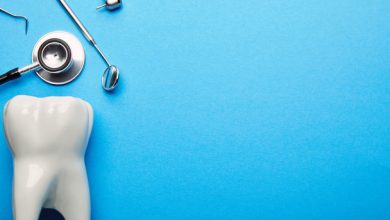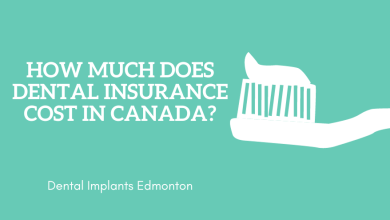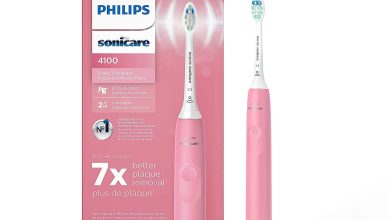Is Dental Caries Transmissible? Debunking the Contagious Tooth Decay Myth

Dental caries is a transmissible condition caused by bacteria present in the oral cavity. Dental caries is a common oral health issue that affects people of all ages, causing tooth decay and cavities.
This condition can be passed from one person to another through the sharing of utensils, close contact, or poor oral hygiene habits. Bacteria such as Streptococcus mutans are primarily responsible for the development of dental caries. Understanding the transmissible nature of dental caries is crucial in promoting preventive measures such as regular dental check-ups, maintaining good oral hygiene, and reducing the risk of transmission through proper education and awareness.
By focusing on effective methods of prevention, dental caries can be limited and controlled to promote better oral health for individuals and communities.
Understanding The Basics Of Tooth Decay
Definition and explanation of dental caries: Dental caries, commonly known as tooth decay, is a common oral health problem caused by the demineralization of tooth structures due to bacterial activity. It is characterized by the progressive destruction of the tooth enamel, dentin, and cementum, leading to cavities or holes in the teeth.
Causes of dental caries: Dental caries primarily occurs as a result of an imbalance between the demineralization and remineralization processes in the mouth. Factors such as poor oral hygiene, excessive consumption of sugary and acidic foods and drinks, inadequate fluoride exposure, and reduced saliva production contribute to the development of dental caries.
Introduction to the contagious tooth decay myth: There is a common misconception that dental caries is contagious or highly transmissible. However, this is not entirely true. Dental caries is primarily caused by individual risk factors and oral hygiene habits rather than being transmitted from one person to another through direct contact or sharing utensils.
Exploring The Lack Of Scientific Evidence
There has been much debate surrounding the transmissibility of dental caries, with some common misconceptions perpetuating the belief that tooth decay can easily be spread from person to person. However, a closer examination of the scientific studies on this topic reveals a lack of concrete evidence supporting this claim.
The role of oral bacteria in tooth decay is often cited as a potential pathway for transmission. While it is true that certain bacteria, such as Streptococcus mutans, are commonly associated with dental caries, the transfer of these bacteria from one individual to another is not clear-cut. Studies have shown that the presence of cariogenic bacteria alone does not guarantee the development of dental caries in all individuals.
Furthermore, the idea that tooth decay can be transmitted through common habits and practices, such as sharing utensils or kissing, is not well-supported by scientific evidence. While these behaviors may contribute to the spread of bacteria in the oral cavity, the actual transmission of dental caries is a complex process influenced by various factors, including oral hygiene habits, diet, and individual susceptibility.
In conclusion, while it is important to maintain good oral hygiene and avoid behaviors that can potentially contribute to the spread of oral bacteria, it is essential to recognize that dental caries transmission is not as straightforward as it may seem. Further research is needed to fully understand the complexities of this process and dispel the misconceptions surrounding dental caries transmission.
Identifying The Key Contributors To Cavities
Dental caries, commonly known as cavities, is a prevalent oral health issue affecting people of all ages. Understanding the factors that contribute to tooth decay is essential in preventing its occurrence and spread. Diet and nutrition play a significant role in the development of cavities. Frequent consumption of sugary and acidic foods and beverages fuels the growth of harmful bacteria in the mouth, leading to enamel erosion and cavity formation. Maintaining oral hygiene practices such as regular brushing and flossing helps remove plaque and prevent the accumulation of bacteria that cause decay. However, it is important to note that genetic factors also influence tooth decay susceptibility. Individuals with a family history of dental caries may have a higher risk of developing cavities.
Debunking The Myth Of Contagion
Dental caries or tooth decay is often believed to be contagious, but this myth can be debunked. While bacteria responsible for cavities can be transmitted, the risk of transmission is low and good oral hygiene practices can prevent its spread.
Overview Of Common Misconceptions About Dental Caries Transmission
There are several misconceptions surrounding the transmission of dental caries (tooth decay) between individuals. Understanding these misconceptions is important in debunking the myth of contagion:
| Misconception | Explanation |
|---|---|
| The transmission of oral bacteria between individuals | Dental caries is not directly contagious. While oral bacteria can be transmitted through activities like sharing utensils, kissing, and breastfeeding, the development of dental caries depends on a combination of factors including oral hygiene, diet, and individual susceptibility. |
| Exploring the importance of personal oral health care | Personal oral health care, including regular brushing, flossing, and dental check-ups, plays a crucial role in preventing dental caries. In addition to good oral hygiene practices, maintaining a balanced diet and reducing the consumption of sugary foods and drinks can significantly reduce the risk of tooth decay. |
Promoting Good Oral Hygiene Practices
Regular brushing and flossing: Maintaining a proper oral hygiene routine is key to preventing dental caries. Brushing at least twice a day with a fluoride toothpaste helps remove plaque and food particles, preventing the buildup of harmful bacteria. Flossing daily removes plaque and debris from between the teeth and along the gumline, where a toothbrush cannot reach.
Maintaining a healthy diet and limiting sugar intake: Consuming a balanced diet rich in vitamins and minerals promotes good oral health. Limiting the intake of sugary foods and drinks is important as the sugars can contribute to the formation of harmful acids that attack tooth enamel.
Regular dental check-ups and professional cleanings: Regular visits to the dentist are essential in maintaining oral health. Dentists can identify and address any early signs of dental caries and provide professional cleanings to remove plaque and tartar buildup. These visits also allow for the discussion of oral hygiene practices and personalized recommendations.
Encouraging Awareness And Empowering Individuals
Education plays a crucial role in dispelling myths surrounding dental caries, also known as tooth decay. By providing accurate information, individuals can make informed decisions about their oral health. Community oral health programs can be implemented to raise awareness about dental caries and its preventable nature. These programs can include educational workshops, outreach initiatives, and campaigns targeted at different demographics. By supporting oral health initiatives and advocacy, individuals and organizations can contribute to the prevention and reduction of dental caries on a larger scale. Together, we can encourage awareness and empower individuals to take control of their oral health to maintain a healthy smile for a lifetime.
Myths Busted: Dental Caries Is Not Transmissible
Recap of the debunked contagious tooth decay myth:
For years, there has been a belief that dental caries is a contagious disease that can be passed between individuals. However, scientific evidence now confirms that dental caries is not transmissible. It is caused by a combination of factors such as poor oral hygiene, excessive sugar consumption, and bacterial plaque buildup.
So, what are the key takeaways from this debunked myth?
- Importance of personal oral hygiene and regular dental care: Maintaining good oral hygiene practices, including brushing twice a day, flossing, and regular dental check-ups, is essential in preventing dental caries. Personal oral care and professional dental care are crucial to maintaining optimal oral health.
- Encouragement for spreading accurate information about dental caries: It’s important to educate people about accurate information regarding dental caries. By sharing the truth about this common oral health issue, we can dispel misconceptions and help individuals adopt proper preventive measures.
In conclusion: Understanding that dental caries is not transmissible emphasizes the significance of practicing good oral hygiene and seeking regular dental care. By disseminating accurate information, we can contribute to better oral health awareness and prevent the spread of misinformation about dental caries.

Credit: www.nivabupa.com
Frequently Asked Questions On Is Dental Caries Transmissible
Is Dental Caries A Transmissible Disease?
Yes, dental caries is a transmissible disease that can be passed from person to person through the transfer of bacteria.
How Is Dental Caries Transmitted?
Dental caries is transmitted through the spread of bacteria in the mouth. These bacteria produce acids that break down the enamel on teeth, leading to cavities. The primary mode of transmission is through the transfer of saliva, usually through sharing utensils, kissing, or close contact.
Why Dental Caries Is An Infectious And Transmissible Disease?
Dental caries is infectious and transmissible because it is caused by bacteria in the mouth. These bacteria can be passed from one person to another through saliva or contact with contaminated objects.
Can Tooth Rot Spread To Other People?
Tooth rot is not contagious and cannot spread to other people. However, the bacteria that cause tooth decay can be transmitted through saliva by sharing utensils, kissing, or other close contact. It’s important to maintain good oral hygiene to prevent the spread of bacteria and protect your teeth.
Conclusion
Dental caries is indeed transmissible. By understanding the causes and risk factors associated with this infectious disease, we can take necessary steps to prevent its spread. Maintaining good oral hygiene, limiting sugary foods and beverages, and regular dental check-ups are vital in safeguarding our oral health.
Remember, knowledge is power when it comes to preventing dental caries and ensuring a healthy smile for a lifetime. Let’s prioritize oral health and make conscious choices for ourselves and our loved ones.





